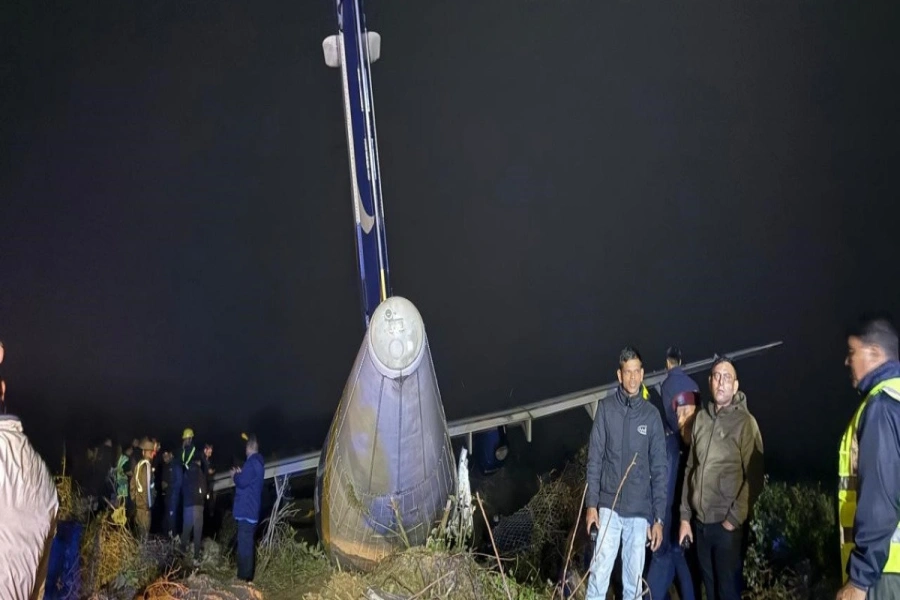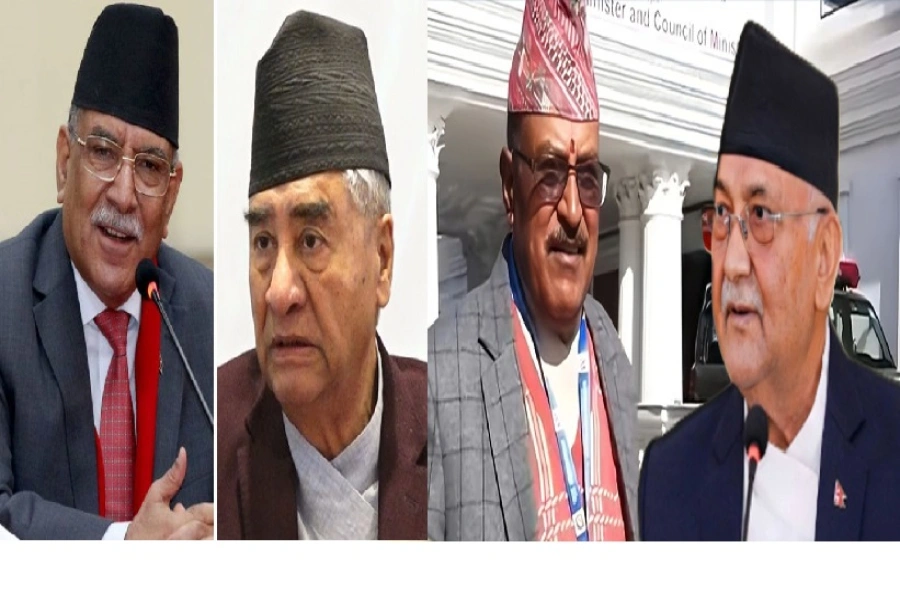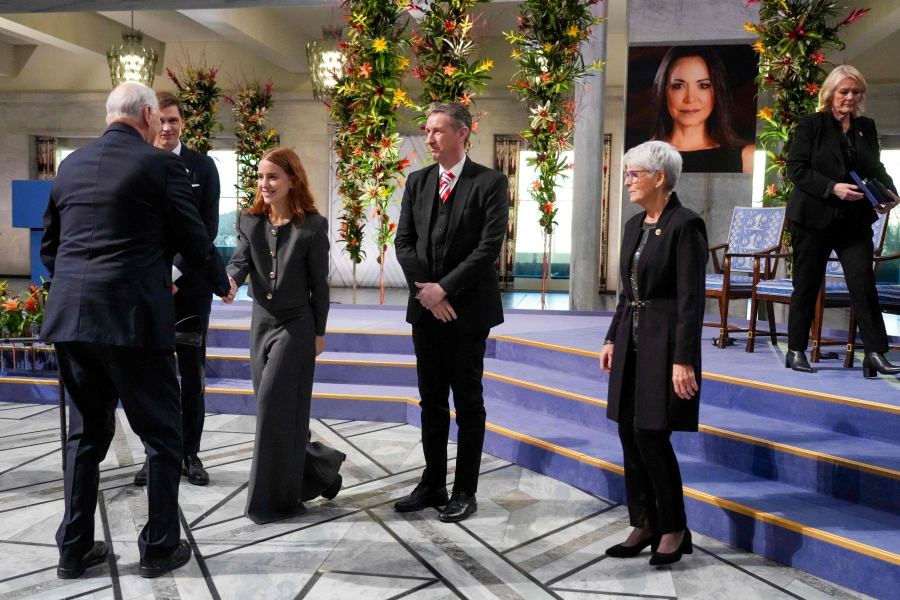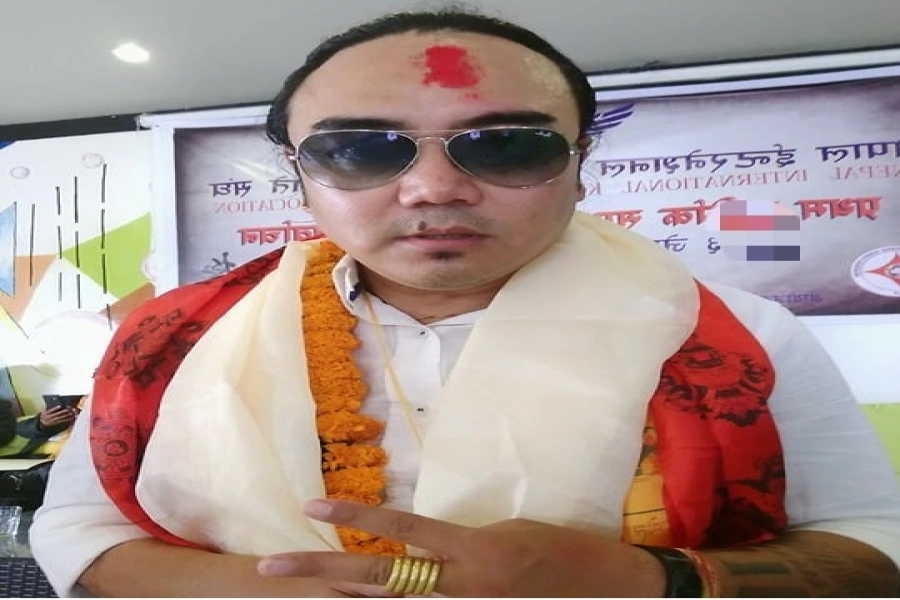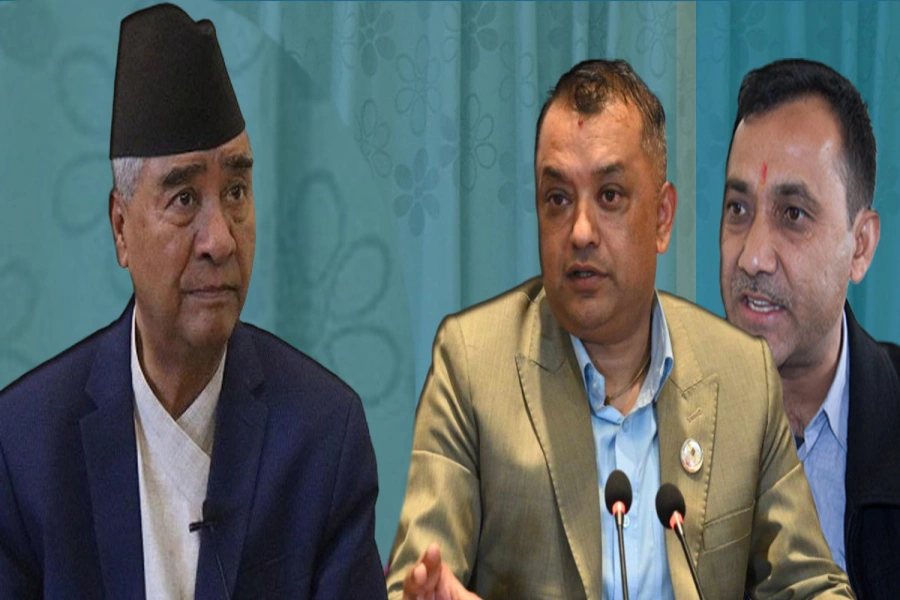How about a broad spectrum of the personalities pitching in here? To start with, let’s bring some national and regional political personalities. For a credible quote and kind words we can turn to former prime minister Krishna Prasad Bhattarai, GPK’s comrade-in-arms and a fellow traveler. In post democracy Nepal, Bhattarai became this country’s chief executive twice as against seven times of Girijababu. Bhattarai may have been a bad-mouthed politician (while the prime minister he once chided media persons saying “you all are thieves”) but one would assume that he has plenty of encomiums for the youngest son of his namesake from eastern Nepal. Kisunji, who famously remarked recently that monarchy in Nepal may run up to three hundred years more, now lives the life of a recluse and has sadly refused to make comments on GPK being nominated for the Nobel. Bhattarai has forgiven GPK for all his transgressions—this has been the common refrain in the NC party circles. But now it seems that the last bit of manipulation by GPK which resulted in Kisunji being hounded out of the prime minister’s office still bears heavily upon his mind.
We can also surely have a line or two from Indian Prime Minister Manmohan Singh as any word or observation from world’s largest democracy carries both weight and merit. Remember how once while greeting his Nepali counterpart in New Delhi, the Indian premier had hailed Koirala as one of Asia’s great leaders? The same Manmohanjee however turned down Koirala’s request to see him when the latter was in the Indian capital the next time. We can dismiss it as an altogether different matter because Koirala was not the prime minister then.
And we certainly can’t expect late Ganeshman Singh, one of the troika that once led the NC, to contribute to the proposed CV. Credited for spearheading Nepal’s popular revolt of 1990 BS, Singh had been favorably disposed to GPK all along till that one fateful day when at a hurriedly called press conference he announced his resignation from membership of the political party of which he was one of the founders. Reason: He was fed up with the acts of commission and omission of GPK, then the prime minister incumbent. Knowing that Koirala now has been nominated for the coveted peace prize late Ganeshmanji’s supposed ghost must surely be startled.
Meanwhile, former King Gyanendra may have some favorable words, if not outright adulation, for GPK. The royal-turned-commoner may curse anyone but GPK for his unceremonious exit from the royal palace less than two years ago. It was somebody else, the ex-monarch knows it fully well, who engineered and executed the so-called regime change that forced the Himalayan burial of the 239-year-old institution crafted by his celebrated forefather. But GPK may not have been an angel either, for he clearly spurned the royal offer for reconciliation, choosing instead to join hands with the Maoists. But wasn’t it Koirala who had espoused the cause of monarchy till the end or say until he was let down by the comrades of the ultra left? For this one may have to look no further than his last straw of the “baby king.”
One would wonder what Maoist supremo Puspakamal Dahal has in his mind about GPK being nominated for the coveted prize. He is annoyed not so much by Koirala’s nomination but over his own exclusion. He directs his ire at the “puppet” prime minister who had the temerity to gloss over the contribution of the guerrilla leader who made Nepal’s current peace process possible, in the first place. Is GPK’s nomination not an offshoot of the decade-old armed insurgency comrade Dahal waged in this once peaceful country? The Maoists also wonder whether Prime Minister Madhav Kumar Nepal reads anything, or say reads the world history. Otherwise, how could he forget that in the not too distant past when an Israeli leader was awarded the Noble Peace Prize, Palestinian leader Yasser Arafat was not left out? Anyway, Dahal may not be very keen about it for he knows very well that with the Maoists still in the US watch list he would stand less of a chance of being short-listed.
Sitaram Yechuri, India’s left-leaning politician who is famous as a friend of Nepal and who undoubtedly played a crucial role in setting the current peace process rolling three years ago is another person who can contribute to Koirala’s CV. Umpteen times he has heaped words of praise on GPK for steering this Himalayan nation through good times as well as bad. But the subject we are in now is a bit tricky for him. Clearly, there are some constraints for Yechuri as he would not want to do anything, by way of word or act that would play a spoilsport in his relationship with the Nepali Maoists. Lest he might offend them.
A fairly large section of the general Nepali populace holds, rightly or wrongly, that GPK is accountable for the mess that Nepal is engulfed in today. His crusades for freedom, democracy and human rights may be plentiful for anyone not to loose sight of, but his acts of impunity overwhelms the commoners. To allege that he introduced the culture of impunity – absence of punishment for wrongdoing – in Nepal may not be wholly fair, but what can be said with a great deal of certainty is that he surely did institutionalize it. He faced the highest number of corruption charges, while almost all his governments were scandal-ridden. Very deftly he maneuvered them, one and all, and avoided from presenting himself before the anti-corruption authorities.
As the top leader of NC, Girijababu exercised control over his party much longer than his peers, and many a time he put up sterling performance, particularly when his party went to the polls. Yet there are many in the NC among the second tier leaders who incessantly bemoan his authoritarian style of functioning. To the chagrin of his cousins, BP’s sons included, he has now successfully crafted a leadership role for his daughter—he would care less if the other party functionaries cry foul.
GPK’s major disservice to this nation, if you can call it, was steering this country to subjugation. If subjugation sounds harsh, we can also call it as subordination. We may wish it to be untrue, but the fact remains that Nepal today is run (governed) by the non-Nepalis. Clearly, we have put ourselves in a sorry pass or state wherein somebody else, not Nepali politicians or people, decide over our fate and destiny. In this process of handing over wily-nilly to someone else our rights and responsibilities to rule ourselves, Koirala’s role has been all too noticeable.
GPK indeed deserves some credit for bringing the Nepal’s Maoists around the table from the jungle. While inking the Comprehensive Peace Agreement in 2006, Koirala even went so far as to claim that he had successfully turned the terrorists into peace makers. But here too, his claim has been contested and even rejected by the Maoists who have all along declined the theory that they were roped in. “We have to see who turned whom and to what, only time will tell,” the firebrand Maoist ideologue Baburam Bhattarai said shortly after.
It is common knowledge that Nepal’s current peace process is not something which we can call as home grown. It set itself rolling with the signing of the 12-point agreement in a foreign strand. What is also clear is that the Maoists joined the peace process, but not necessarily at Koirala’s call. They responded to the same call to which GPK also responded.
Koirala, 85, was and still is one of the key players of the glorified drama which is aimed at restoring peace in turbulent Nepal. With much love lost between the Maoists and GPK now, peace may still be a far cry. But this does not mean Oslo should not seriously consider Koirala’s nomination for the Nobel Peace Prize.
macharya45@yahoo.com
World Food Program bags Nobel Peace Prize




